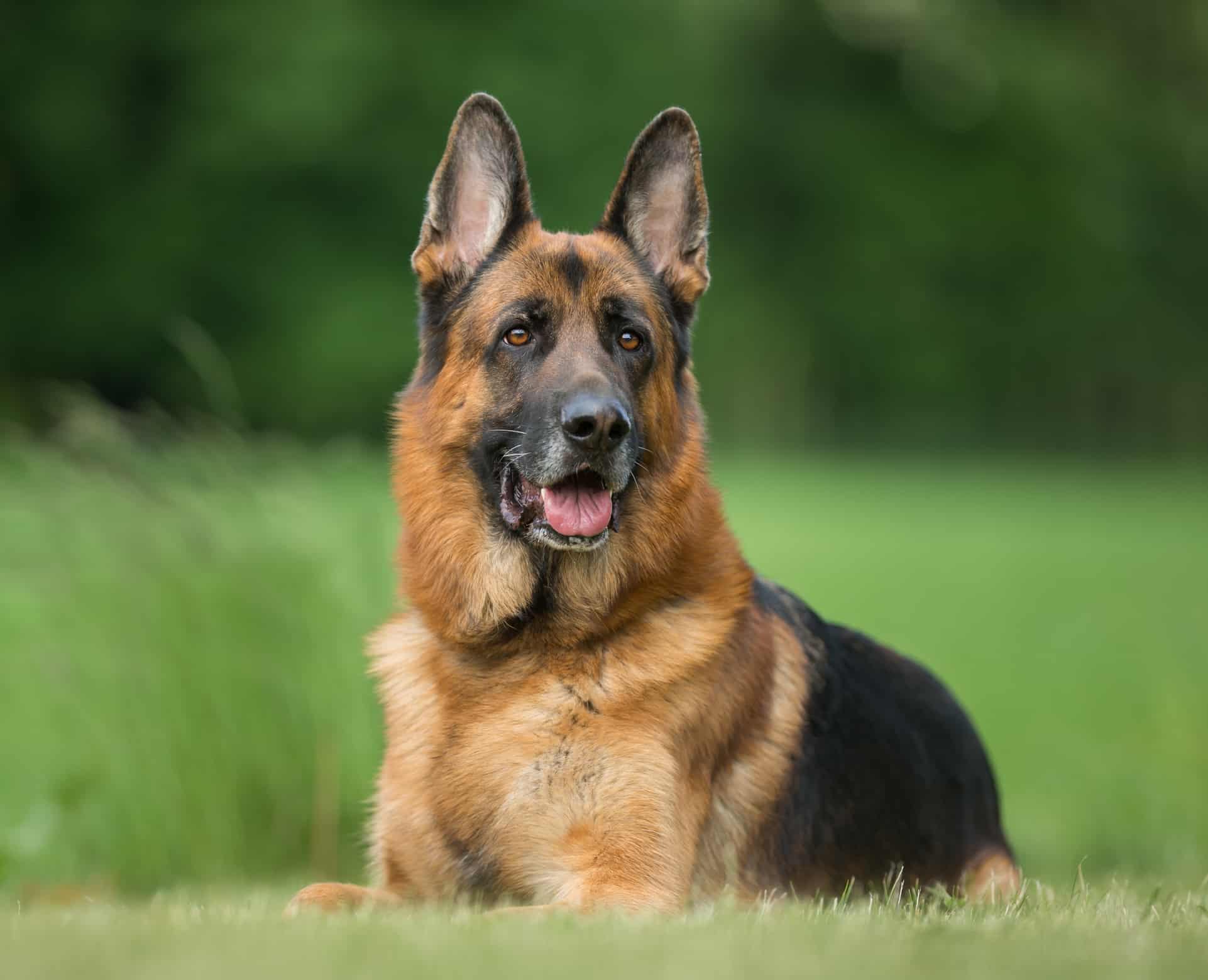For many dog lovers, the German Shepherd’s sociable nature and protective instincts make it the ideal dog to share our home. In addition to getting along well with humans, this breed of dog also adapts to all kinds of environments. However, caring for a German Shepherd is not all sunshine and rainbows and requires a lot of time, attention and care.

Today, we’re here to help you make an informed decision; below we list the pros and cons of getting a German Shepherd. Enjoy your reading!
The Advantages of a German Shepherd
Let’s first look at how some of the characteristics of this dog make it one of the most popular breeds with families around the world:
Loyalty
This dog breed has a strong character and is very confident. It is always alert and suspicious of strangers. It is very rare for a German Shepherd to be aggressive towards other dogs.
The German Shepherd develops a strong bond with those who share his life. It will never hesitate to defend their own, especially children. It is a canine with a strong protective instinct and it seems to be able to sense if someone needs help.
Intelligence

One of the most intelligent breeds, the German Shepherd is easy to train. This type of dogs responds positively to training and, if properly socialized from a young age, you will avoid bad relationships with humans or other dogs. In its eyes, you will be able to feel a sense of great wisdom and you will be pleased to know that it understands every word you tell to it!
Adapt Easily
A German Shepherd has no problem adapting to different environments. It can live quietly in the country or in the city. And can even live in apartments, although this is not recommended.
Thanks to its versatility, it is a dog chosen to collaborate with the police or military forces as well as to perform rescue tasks. In addition, its natural tendency to help others makes it an ideal companion for people with physical disabilities.
A Powerful Nose

A German Shepherd is also often characterized by its sharp sense of smell. In fact, it is considered one of the most reliable in the canine world. This makes it very effective in finding lost people, as it is a very good finder; it is usually very good at detecting drugs or explosives as well.
A Beautiful Breed
A German Shepherd has the image of the elegant and haughty dog. It has a very developed musculature, which translates into a very balanced aesthetic line. It is, in short, very beautiful and harmonious dogs. Its swaying features are perfectly complemented by a pleasant temperament.
The Disadvantages of Owning a German Shepherd
The cons of owning a German Shepherd have less to do with the dog and more to do with the environment around it. Being so active and sociable, this dog has to live with people who spend a lot of time with it.
Also, because of the influence of movies and television, some may think that a German Shepherd is perfect. And, although it is an amazing dog, we must not overlook the fact that it is made of flesh and blood. Not all the German Shepherd are the famous Hollywood dog, Rin Tin Tin. Therefore, if you consider choosing one as a companion, it is also important to know the disadvantages that may arise.
Time and Space Requirements

A German Shepherd is a very energetic dog and therefore needs a companion who can keep up with it. To be fully happy, it needs to live in a house with a yard or garden where it can let off steam at will. In addition, it needs at least three long walks a day if it is an adult dog and five in the case of puppies. A German Shepherd does not react well to being left alone for long hours at home, even if it has space.
A close relationship with the people it lives with is a must too. That’s why it’s important to give it lots of affection, as well as to play with it often.
Health Problems
Although a German Shepherd is considered as a robust breed, being such a sought after dog has led to indiscriminate breeding. As a result, careless breeding has triggered the hereditary problems it can exhibit.
This type of dogs tend to suffer from a congenital bone disease that mainly affects large dogs: hip and elbow dysplasia. It is also prone to distemper, so proper preventive vaccination is essential. Stomach and pancreas problems are other common ailments.
Hair All Over the House
/reduce_dog_shedding_1118286_2623-5ed96d9f473341b086624c7450185018.jpg)
Although their coats don’t require special care, this dog has a double layer of hair. What does this mean? It sheds a lot. With daily brushing, you can partially, but never completely, solve this problem. If you don’t like to find hair on the couch or bed, it’s best to start thinking about a different type of companion.
To summarize, although the German Shepherd is very intelligent, loyal and adaptable, it does not get along well with loneliness and being locked up at home. That is why, if you finally decide to get this dog, you will have to dedicate a good part of your time to it and give it lots of affection. According to you what type of dog is the best breed to have at home? Share your thoughts in the comments below!
